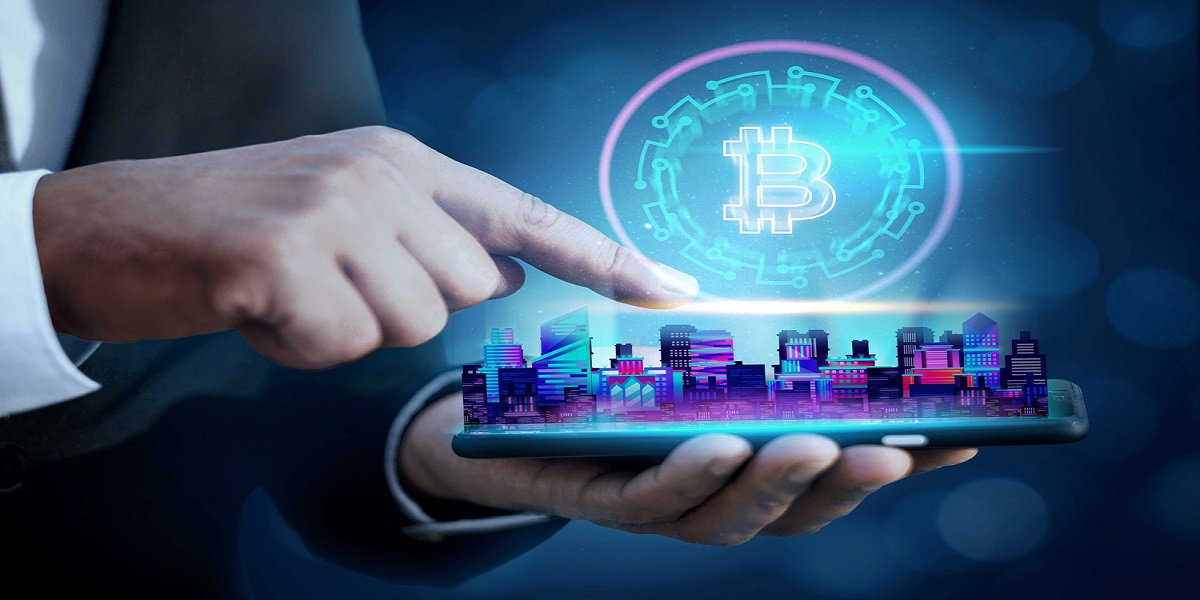
5 Ways Blockchain is Transforming the Technological World
- By Kiara Miller
- 09-02-2024
- Blockchain
Introduction
Developed in 1991 to build a transparent network for sharing information within businesses, blockchain technology is trying to transform each and every industry. With more industries adapting to blockchain technology, the world is witnessing a whole new technological advancement that has a secure and reliable network. The latest blockchain trends have also contributed to making them into a mainstream phenomenon that continues to dominate the market.
This blog sheds light on the know-how of blockchain technology and the five different industries that will potentially grow with the use of blockchain technology.
What is Blockchain?
Blockchain, in simple terms, is a type of record-keeping technology that consists of storing and distributing digital information in data blocks along a data chain, which is either a public, private, or hybrid database. It involves decentralizing data storage that can be instantly shared with all the users. The change this technology brings in the ways users access and share information makes this technology applicable to anything from public governance, financial transactions, digital security, international law, and economics.
To explain it further, blockchain technology can be defined as an immutable ledger that can be used to simply process of recording any transaction made throughout the business operations or to keep track of the assets in the network. The process includes tracking anything happening on a virtual network that can be considered of value and can be used to make trades and transactions on a blockchain network which ultimately helps in reducing the risks and costs for all the parties involved.
Why is blockchain important?
Well, you already know any type of business operates on information, and you’ll agree on the fact that information is more accurate if received faster. And this is where blockchain comes into play; it’s the ideal technology for instantly, transparently, and accurately sharing information that can only be accessed by authorized members on the blockchain network.
Moreover, a blockchain network not only records and shares information, but it can also track any kind of information ranging from orders, payments, accounts, production, and much more. Finally, the digital aspect of the technology unveils an array of new opportunities and makes the whole process time- and money-efficient.
How does blockchain work?
The complex mechanisms of blockchain can be simply described as a chain of blocks that stores all the transaction-related data that happens over time. With the increasing number of transactions, the blockchain keeps on increasing as well.
The transaction data is recorded as a data block, which is equivalent to the pages of a ledger block. The first block has a header and data that help take all the transactions into account, along with a cryptographic hash that acts as a timestamp. The subsequent blocks are linked to the first block with the help of a hash. These blocks, however, cannot be modified, which makes the blockchain completely secure.
Applications of blockchain in the technological world
There are various ways in which the technology of blockchain can be applied to get into the untapped potential of these technologies:
- Supply chain
- Healthcare
- Banking
- Agriculture
- Education
Supply chain
The Covid-19 pandemic and nationwide lockdowns have been a huge roadblock for supply chains worldwide. This has resulted in disrupted flow in the chain, often leading to unfinished goods, an inadequate supply of raw materials, and halted manufacturing units. According to Statista, around 20% of professionals have reported disruptions in their supply chain due to the pandemic. However, after 2 years, the situation hasn’t seen much progress, but thanks to the pandemic, some previously existing problems in the supply chain also came to light that went ignored back then.
But when the whole world is adapting to technological advancements, why should supply chain management be left aside?
This is when blockchain technology comes into play in the supply chain. So, when we apply blockchain technology to the supply chain, all the transactions get recorded on different blocks. These transactions are then distributed over a network of various systems in the blockchain, because of which all the stored information becomes remarkably transparent. In addition to this, all the transactions in a blockchain supply chain are shown in real-time. This increases the participation of the stakeholder as he gets notified of every transaction happening in the blockchain supply chain.
When it comes to consumers, the blockchain supply chain is effective in building trust and strong customer relationships. This happens because consumers get every bit of information about the product that they have purchased through the blockchain. Not only this, consumers can also check whether a product in a blockchain supply chain is genuine or not, which in turn helps the companies build a sense of trust in the consumer's minds about their brands.
Healthcare
Here again, in the case of healthcare, blockchain technology found its place due to its security and transparency. The healthcare industry faces a number of security breaches every year, which are estimated to be over 511 reported in 2023 alone, from January to September. These security breaches are largely carried out by hacking or ransomware attacks through computers; however, rare cases might also include theft or loss of documents by the staff leading to such breaches.
Despite the increase in the number of security breaches happening every year, the healthcare sector still hasn’t prioritized cybersecurity or made any policies regarding cyber violations leading to strict penalties and fines. In order to save this sensitive data from any potential threats, it is the need of the hour to apply blockchain technology to the healthcare industry as well to store all the data in a secure manner.
Following the same blockchain pattern, all the medical records stored in a blockchain will be linked to each other in the form of blocks, which can be registered and checked publicly, providing accountability to all the medical records. Blockchain technology in the healthcare system will not only improve the performance of the whole healthcare setup but also provide all the doctors, nurses, and patients with a secure and transparent way of sharing healthcare data. The workflow process of blockchain technology will support the healthcare industry by enhancing medical records.
Introducing blockchain technology to the healthcare system will also aid patients by saving a lot of time and money that goes into transferring medical records between different healthcare institutes. If blockchain technology gets introduced to the healthcare industry, it can act as the best method to store data in an efficient and secure manner.
Banking
One of the major issues that blockchain technology aims to solve is the misuse and exploitation of collected data in huge workplaces such as banks. Blockchain technology has become immensely popular in the past few years in the banking sector owing to the challenges that it proposes to solve. Blockchain technology in the present-day scenario has revolutionized the whole operation of the banking system by providing enhanced security and reducing the associated risks with the data kept by the banks.
The prominent change that blockchain technology aims to bring to the banking sector is its ability to record transactions in a way that is secure and efficient. In a conventional banking model, where all the data and information are stored on a centralized database, there are often chances of data discrepancies. Another problem associated with a centralized database is reduced speed and efficiency of work, as if the central server goes down, the entire system becomes unavailable. However, this is not the case with a blockchain, which follows a decentralized system.
Given that a blockchain is a decentralized network, it shares all the transactions with trusted participants, keeping them involved with the whole transaction throughout their participation in the blockchain. There is little to no room for failure in such a decentralized system, leading to any problems related to the theft of data. A decentralized system does not compromise the system due to any failure occurring at any single block, which reduces the risk of cyberattacks.
With advanced technology also comes another benefit of automation in work. In the case of banking, as blockchain technology provides an efficient method to store data, it helps to save time and money borne by other intermediaries and third-party service providers. This not only benefits the bank and its employees but also benefits the customers, especially when making international payments. International payments, with the help of blockchain technology, take less time to process at a potentially lower cost by cutting off the fees given to the intermediaries.
Agriculture
The application of blockchain technology in agriculture is quite similar to its application in supply chain management. The application of blockchain technology in the agriculture sector, though little explored, has the potential to completely revolutionize the whole agriculture industry in food production, controlling weather-related crises, and managing agricultural finance.
By introducing blockchain in agriculture, vast amounts of data can be collected related to important stages in food production. Let’s say we consider three stages, which are crop and soil monitoring, warehouse and distribution, and retail marketing. Now, data collected from every single stage will be collected and then processed at a collective level in the form of a smart contract. This, in turn, would hash all the information and save it on the blockchain, ultimately leading to output giving out related information.
Taking the first stage of crop and soil monitoring into consideration, the first step will be to collect data related to the temperature and pH level of the soil. This information is then combined with the pesticide, water spray, weather, and wind, which can be taken using IoT devices. The whole data is then processed in a smart contract, which then hashes out the whole data and saves it on different blocks in a blockchain. The blockchain would then provide the farmer with related information after processing the blockchain data. Taking information from all three stages, we can assume that the farmer might get data on land usage, which could give useful insights on soil quality and help the farmer make informed decisions.
Owing to the blockchain technology’s transparent process, trust between producers and consumers gets established. The consumers trust the produce and consider purchasing it, as the blockchain provides them with genuine information on how their food is produced. Not only this, they get all the information regarding the quality of food. Along with this, they also get to communicate with the producer and learn more about the food production process.
Education
The convergence of blockchain and education aims to transform the way in which academic data is managed. Not only this, blockchain technology, when combined with education, can change the way in which the entire educational system is managed, having a drastic effect on student-teacher interaction.
With the use of smart contracts in education, the work of managing course content and distributing it to students becomes easier. This also helps the educators save a lot of time, which otherwise goes into the preparation of course content, including readings, videos, and quizzes. Moreover, smart contracts are also capable of tracking the academic progress made by students and keeping an account of the completion of their assignments according to the due dates.
Considering that blockchains have a decentralized system, all important student-related documents and files are stored on a secure system. The decentralized system also makes a clear and transparent system, due to which all the stored documents cannot be changed, which means that they can be easily verified and trusted by other institutions. Blockchain technology also helps streamline the process of transferring educational documents, simplifying the cumbersome process and saving students, teachers, and administrators time.
For example, if a student is applying to a university through the normal process, it might take the student a lot of time to collect and upload all the documents to the university’s portfolio. However, if the student uses blockchain technology, all of their educational data, including their degrees, certifications, and necessary documents, is available over there, which can be easily accessed by the administrator. This leaves very little room for any kind of mistake that could be made while transferring the documents and saves a lot of time. On the other hand, the admissions committee believes in the authenticity of the documents, given that all the documents on the blockchain are immutable.
Conclusion
To sum up, the capabilities of blockchain technology have grown rapidly over the years. With its vast potential, there are many fields where its technology can be applied to revolutionize conventional working methods. Blockchain technology used in supply chain management, healthcare, banking, agriculture, and education has made a tremendous change in the day-to-day practices in this sector.
Recent blog

Harnessing Social Media: Tactics For Powerful Marketing Success Achievement
Social Media | 25-07-2024
7 Hidden Secrets of MSI Laptop Boot Menu Key
Technology | 24-07-2024




